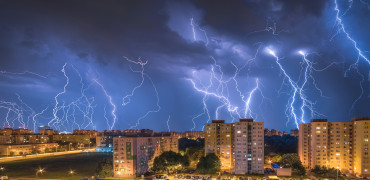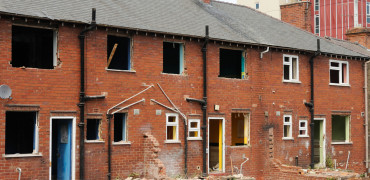As we near the end of Spring, we need to be thinking about how to make the most of the lighter days and warmer weather that lie ahead of us.
In this article, Joe Bradbury of Housing Association magazine discusses the importance of undertaking maintenance work to your heating systems throughout the summer months and how doing so will save you time, money and heartache in the long run.
Whilst heating isn’t necessarily as high a priority to tenants as it is when we are clasped in the harsh grips of winter, it doesn’t make it any less important.
In fact, this is likely the best time to be thinking about changes and amendments to your heating systems, to prevent sky high costs and urgency when the heating breaks come wintertime.
If it’s time to reconsider the way you heat your housing stock, what better time to do so than in the warmth of Summer?
Replace inefficient heating
Due to an increase in corporate responsibility and mounting pressure from environmental policies, housing associations now find themselves on the constant lookout for effective ways of reducing carbon output and increasing efficiency.
Replacing heating systems such as direct electric, storage heaters, oil and LPG with renewable alternatives is arguably one of the best ways of doing this. Installing a heat pump, for example, will not only be efficient and sustainable, but has also been proved to improve comfort levels exponentially for tenants and offer a greater level of control in this, the age of the smart home.
The widespread use of inefficient heating systems throughout our country exacerbated by fuel poverty is doing a lot of damage to our housing stock. Mould and damp is unhealthy, unsightly and damages furnishings; at its worst it can render a house entirely uninhabitable and unprofitable.
Repairing its damage is a time-consuming and needless expense, because without addressing the underlying cause of the damp, you only serve to lay hard work and money to waste.
Why heat pumps?
Heat pumps, such as the market-leading Ecodan help create a healthy indoor environment for both tenant and structure alike.
They also reduce running costs, which saves money on future heating bills and further adds to their eco-credentials. Ecodan has an A++ ErP rating - making it the most efficient on the market.
Heat pumps are easy to design and install, reducing installation time and minimising any disruption to your property. Maintenance on an Ecodan system is also much simpler than gas, and with a professionally maintained Ecodan air source heat pump unit offering an average lifespan of 15 to 20 years, savings on maintenance can be made and disruptions to your property are very infrequent.
Because air to water heat pumps are best suited to continuous running, they provide a more constant level of comfort for tenants when the house is occupied and reduce mould, damp and damage occurring within the property when it is vacated.
By allowing tenants to heat all of their homes cost-effectively, rather than just one or two rooms, the property incurs less damage and requires less maintenance. This reduces the risk of it falling into a state of disrepair.
HAs that implement renewable solutions such as heat pumps are safe in the knowledge that they are taking care of their assets as well as their tenants, providing warm homes and reducing unnecessary and avoidable expense.
In summary
Maintenance is an unavoidable expense faced by all landlords and housing associations. But by wisely planning it out over the course of the year and taking steps to avoid being hit with expensive repair costs in the winter, we can ensure we are conducting our business in an ethical, environmentally-friendly and economically wise manner.
If you are still unsure about what to do with your existing heating systems and are on the fence about replacing them entirely, I urge you to ask yourself 3 questions:
- Is the current heating system as efficient as it could be?
- Is it providing adequate comfort and quality for your tenants?
- Is it costing them more money than it should to run?
If your answer to one or more of these questions gives cause for concern, then it’s time to reconsider the way you heat your housing stock.
What better time to do so that in the warmth of Summer?
Joe Bradbury is digital editor of Housing Association magazine



